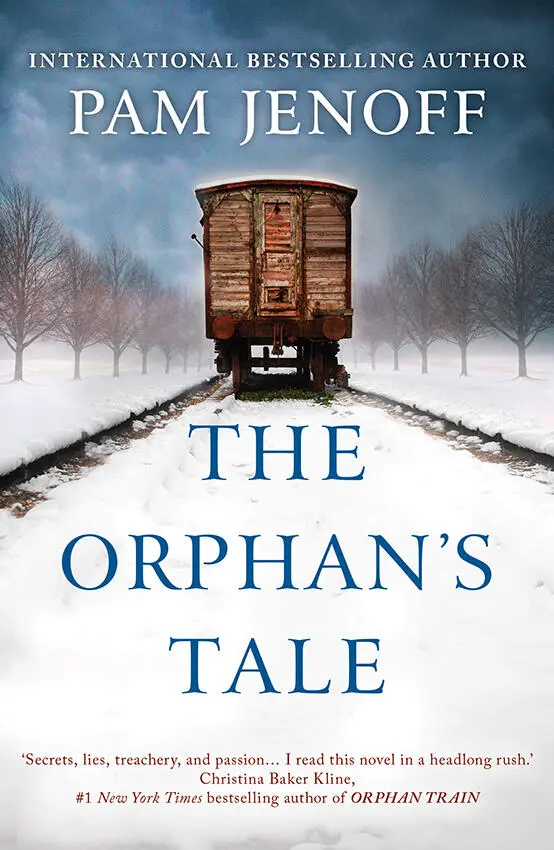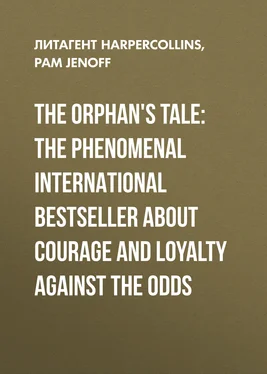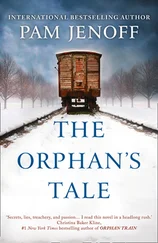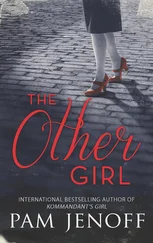
A powerful novel of friendship set in a traveling circus during World War II, The Orphan’s Tale introduces two extraordinary women and their harrowing stories of sacrifice and survival
Sixteen-year-old Noa has been cast out in disgrace after becoming pregnant by a Nazi soldier and being forced to give up her baby. She lives above a small rail station, which she cleans in order to earn her keep... When Noa discovers a boxcar containing dozens of Jewish infants bound for a concentration camp, she is reminded of the child that was taken from her. And in a moment that will change the course of her life, she snatches one of the babies and flees into the snowy night.
Noa finds refuge with a German circus, but she must learn the flying trapeze act so she can blend in undetected, spurning the resentment of the lead aerialist, Astrid. At first rivals, Noa and Astrid soon forge a powerful bond. But as the facade that protects them proves increasingly tenuous, Noa and Astrid must decide whether their friendship is enough to save one another—or if the secrets that burn between them will destroy everything.
Praise for the novels of Pam Jenoff
“A heartbreakingly romantic story of forbidden love during WW2”
—Heat
“Must-read”
—Daily Express
“A beautiful story of love and redemption about a woman struggling to find her voice and her way amidst the turmoil of World War II.”
—Kristin Hannah, bestselling author of The Nightingale
“A warm and heartfelt story of emotional survival.”
—Diane Chamberlain
“When it comes to bringing an era to life, this author has no peer.”
—Susan Wiggs
“Heartfelt, stirring... Definitely one for my keeper shelf.”
—Karen White
“The kind of book that absorbs you from the beginning and doesn’t let go.”
—Beatriz Williams
“Powerfully and emotionally written.... This is a book you’ll want to read more than once.”
—RT Book Reviews, 4.5 stars
“Fans of Kate Morton and Alyson Richman should reach for Jenoff’s latest.”
—Booklist
Also by Pam Jenoff
Kommandant’s Girl
The Diplomat’s Wife
The Ambassador’s Daughter
The Winter Guest
The Last Embrace
Copyright

An imprint of HarperCollins Publishers Ltd
1 London Bridge Street
London SE1 9GF
First published in Great Britain by HQ in 2017
Copyright © Pam Jenoff 2017
Pam Jenoff asserts the moral right to be identified as the author of this work.
A catalogue record for this book is available from the British Library.
This novel is entirely a work of fiction. The names, characters and incidents portrayed in it are the work of the author’s imagination. Any resemblance to actual persons, living or dead, events or localities is entirely coincidental.
All rights reserved under International and Pan-American Copyright Conventions. By payment of the required fees, you have been granted the non-exclusive, non-transferable right to access and read the text of this e-book on-screen. No part of this text may be reproduced, transmitted, down-loaded, decompiled, reverse engineered, or stored in or introduced into any information storage and retrieval system, in any form or by any means, whether electronic or mechanical, now known or hereinafter invented, without the express written permission of HarperCollins.
Ebook Edition © January 2017 ISBN: 9781474056700
Version: 2018-07-10
For my family.
Contents
Cover
Back Cover Text
Praise
Also by Pam Jenoff
Title Page
Copyright
Dedication
Prologue
Chapter 1
Chapter 2
Chapter 3
Chapter 4
Chapter 5
Chapter 6
Chapter 7
Chapter 8
Chapter 9
Chapter 10
Chapter 11
Chapter 12
Chapter 13
Chapter 14
Chapter 15
Chapter 16
Chapter 17
Chapter 18
Chapter 19
Chapter 20
Chapter 21
Chapter 22
Chapter 23
Chapter 24
Chapter 25
Chapter 26
Chapter 27
Epilogue
Author’s Note
Acknowledgments
Questions for Discussion
A Conversation with Pam Jenoff
Extract
About the Publisher
Prologue
Paris
They will be looking for me by now.
I pause on the granite steps of the museum, reaching for the railing to steady myself. Pain, sharper than ever, creaks through my left hip, not perfectly healed from last year’s break. Across the Avenue Winston Churchill, behind the glass dome of the Grand Palais, the March sky is rosy at dusk.
I peer around the edge of the arched entranceway of the Petit Palais. From the massive stone columns hangs a red banner two stories high: Deux Cents ans de Magie du Cirque—Two Hundred Years of Circus Magic. It is festooned with elephants, a tiger and a clown, their colors so much brighter in my memories.
I should have told someone I was going. They would have only tried to stop me, though. My escape, months in the planning since I’d read about the upcoming exhibit in the Times, had been well orchestrated: I had bribed an aide at the nursing home to take the photo I needed to mail to the passport office, paid for the plane ticket in cash. I’d almost been caught when the taxicab I’d called pulled up in front of the home in the predawn darkness and honked loudly. But the guard at the desk remained asleep.
Summoning my strength now, I begin to climb again, taking each painful step one by one. Inside the lobby, the opening gala is already in full swing, clusters of men in tuxedos and women in evening gowns mingling beneath the elaborately painted dome ceiling. Conversations in French bubble around me like a long-forgotten perfume I am desperate to inhale. Familiar words trickle back, first in a stream then a river, though I’ve scarcely heard them in half a century.
I do not stop at the reception desk to check in; they are not expecting me. Instead, dodging the butlered hors d’oeuvres and champagne, I make my way along the mosaic floors, past walls of murals to the circus exhibit, its entrance marked by a smaller version of the banner outside. There are photos blown up and hung from the ceiling by wire too fine to see, images of a sword swallower and dancing horses and still more clowns. From the labels below each picture, the names come back to me like a song: Lorch, D’Augny, Neuhoff—great European circus dynasties felled by war and time. At the last of these names, my eyes begin to burn.
Beyond the photos hangs a tall, worn placard of a woman suspended from silk ropes by her arms, one leg extended behind her in a midair arabesque. Her youthful face and body are barely recognizable to me. In my mind, the song of the carousel begins to play tinny and faint like a music box. I feel the searing heat of the lights, so hot it could almost peel off my skin. A flying trapeze hangs above the exhibit, fixed as if in midflight. Even now, my almost ninety-year-old legs ache with yearning to climb up there.
But there is no time for memories. Getting here took longer than I thought, like everything else these days, and there isn’t a minute to spare. Pushing down the lump in my throat, I press forward, past the costumes and headdresses, artifacts of a lost civilization. Finally, I reach the railcar. Some of the side panels have been removed to reveal the close, tiny berths inside. I am struck by the compact size, less than half my shared room at the nursing home. It had seemed so much larger in my mind. Had we really lived in there for months on end? I reach out my hand to touch the rotting wood. Though I had known the railcar was the same the minute I had seen it in the paper, some piece of my heart had been too afraid to believe it until now.
Читать дальше



![John Stieber - Against the Odds - Survival on the Russian Front 1944-1945 [2nd Edition]](/books/405234/john-stieber-against-the-odds-survival-on-the-russian-front-1944-1945-2nd-edition-thumb.webp)










